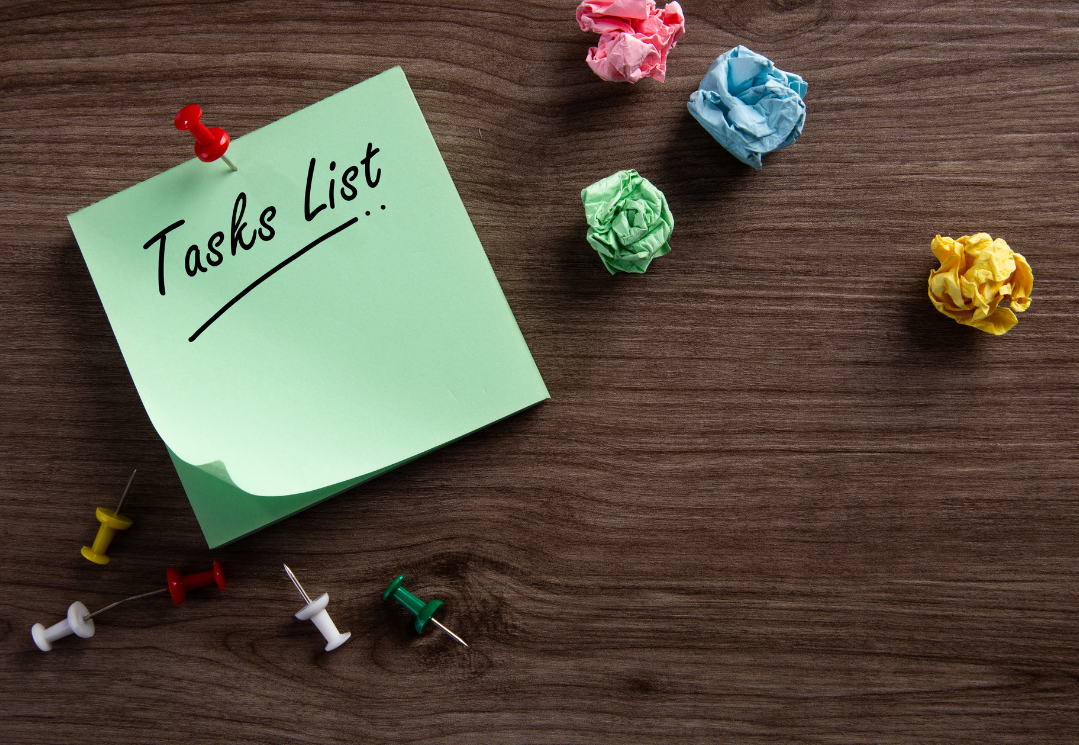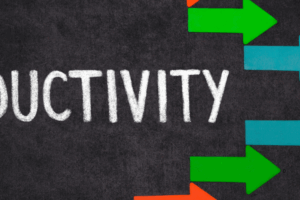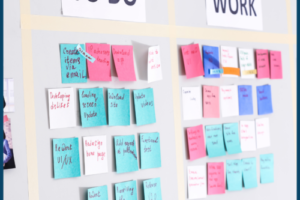
3 Simple Steps to Stop Task Churning and Increase Productivity
Using an ice cream churn leads to a yummy treat. The spinning of a butter churn results in a tasty topping for fresh bread.
Unfortunately, when this constant bubbling hits your to-do list, the outcome is unhelpful unless you learn how to stop the churn.
You know what I’m talking about. You start Task A when your phone dings. “It might be an emergency,” you think. While it’s not, it’s a question about a social event. You have to consult with your calendar and other people before you can respond. You may as well take care of it while it’s top of mind. The answer is “yes,” so now you have to decide what dessert to bring and you start looking up recipes on your computer. When you remember and return to Task A. After making good progress, all of the sudden you remember something else you should be working on. You’d better get out the materials needed to complete Task B before you forget. You prefer to work on this, so you give yourself a break from Task A. Then a thought for a fabulous dessert pops into your mind and you’re off making the grocery list.
What’s worse? When you’re “regular churning” is accelerated due to an unexpected situation. Maybe you wake up feeling very dizzy. Consulting Dr. Google yields tons of possible reasons. Soon you’re answering self-diagnostic questionnaires, reviewing specialists, and contacting friends for advice. Your brain is is overloaded with possible next steps.
One reason I get stuck in task churning is that I’m a recovering perfectionist. Even as I type this, I’m thinking, “Is it better to use this word or that word? Which one will help people more? Or maybe a link to an article would get the point across better.” And off I go trying to find the best article. Pretty soon I’ve taken half-a-day to write one article!
How do you break the churn cycle?
Minimize the mental murmurs.
As your brain pings-pongs from one thought to another, it’s generating anxiety in addition to tasks galore. You begin one job just to get distracted and start on something else. So you’ve got two activities going on when another responsibility pops into your head and off you go to tackle that.
You’re experiencing task and stuff-overwhelm which can lead to analysis paralysis.
It’s time to disrupt the brain chatter! One approach is to practice mindfulness. This can be a pause of varying lengths of time. If you want to learn more, check out Here’s a Method That Helps Distracted People to Improve Their Focus.
A related idea is to close your eyes and take three deep breaths, in through the nose and out through the mouth. Alternatively, you could march in place for 20 steps.
Basically you want the brain to do something completely different so it will be forced to reset.
Terminate the task churn.
You continually move some tasks around and procrastinate others. Unfortunately, many of them are not finished. Then new jobs enter the queue.
Task-overwhelm is in full swing and your anxiety is mounting.
It’s time to toss the crushing avalanche of activities. Pause and ask yourself: “What is the one most important (but small) action I can take right now to move forward?” Do that step and then ask the question again. It’s crucial that it be a small step so you can complete it in a short amount of time.
Using this strategy on a consistent basis automatically leads to prioritizing, which in turn means some tasks will eventually be deleted from your list.
Stop the “stuff shuffle.”
Tasks often involve physical or digital supplies.
You sort a stack of papers and end up with about the same number, just in different piles. You sort clothes scattered in your bedroom. Now you’ve got labeled piles: donation, laundry, put away, etc. Unfortunately, one pile is in front of your dresser, so you need to move it to get into a drawer. It’s great that your clothes are categorized, but they still aren’t in permanent homes.
My guess is that you’re still feeling stuff-overwhelm and it’s preventing you from finishing other to-do’s.
It’s time to cease moving your items around. Instead, pause and ask yourself: “What decision needs to be made here?” If the paper needs to be filed, file it. If the clothes need to be donated, fill a bag and take it to your car.
In any of these three scenarios, being accountable to someone: friend, co-worker, coach, etc. greatly increases the likelihood of success.
If you want to develop skills to decrease task churning, send me a message. I support ambitious people during a significant transition in their life go from overwhelm to feeling in control of what once felt uncontrollable.



